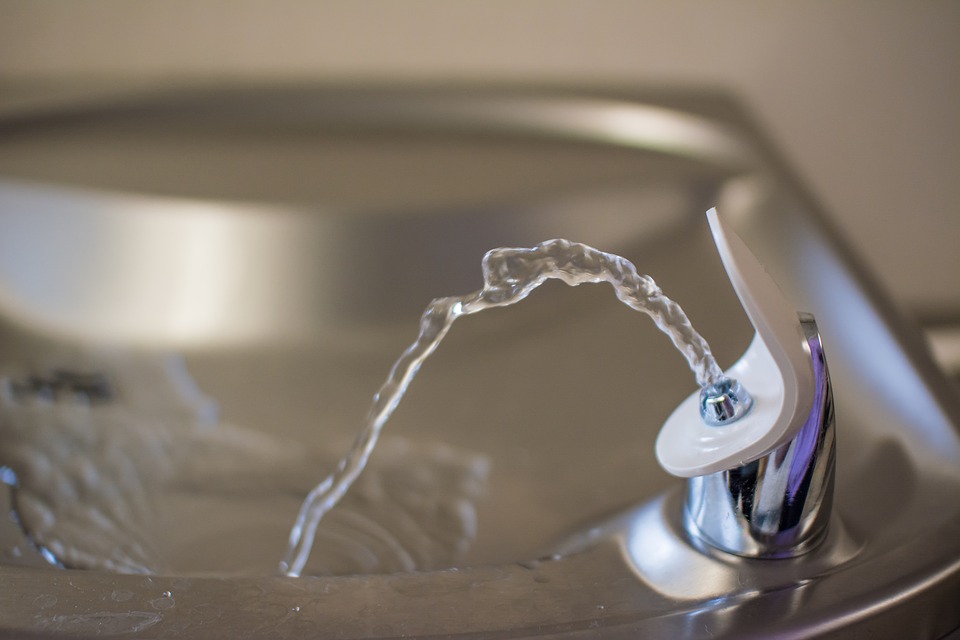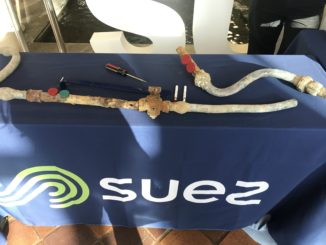
BY MIKE MONTEMARANO AND TOM CLANCEY
OF PASCACK PRESS/NORTHERN VALLEY PRESS
A nonprofit called Environment New Jersey recently compiled a list of available testing results for lead contamination in drinking water sources made public by school districts in Bergen County, claiming 55 percent of sources tested positive for trace- or actionable-levels of the neurotoxin lead. State schools have been searching for and remediating lead in water sources after a 2014 clean-water crisis in Flint, Michigan created awareness of potential danger, followed by the discovery of lead-tainted water in several of New Jersey’s large urban districts.
All school districts in the state were required to search for lead in water sources and make testing results and information publicly available after a state administrative ruling in July 2016. Environment New Jersey, an advocacy group, analyzed the publically-available results of water sources tested in Bergen County schools from 47 districts with available data, out of the county’s 72 districts.
“Bergen County school districts acted quickly to conduct testing and remediation of lead in their schools. These initial results show that we need a more robust response and we need a state and federal action that focuses on both testing and remediation,” said state Sen. Bob Gordon (D-38), in a statement shared by Environmental New Jersey.
Lead poisoning via drinking water is often attributed to lead-free water travelling through outdated water infrastructure. Lead solder was a common building material used during the era when many North Jersey schools were constructed. Children absorb lead into their systems at a much higher rate than adults. Lead contamination can permanently impact every one of the body’s organs, bones, and blood cells, and cause irreversible intellectual disabilities.
A proposed state law (S2082/A3539) requiring public and nonpublic schools to test for and remediate lead in drinking water, and disclose test results, was unanimously adopted in the state assembly, but has not advanced beyond committee in the state senate. “In a testament to public pressure, Gov. Christie announced the testing program last year and has included funding in last fiscal year’s budget, but testing isn’t codified and remediation isn’t addressed,” claimed Environment New Jersey.
“The legislation’s key provisions require both testing for lead in the drinking water for all school systems, immediate shut-downs of water outlets that fails, notification of the public and transparent test results and required remediation.” New Jersey’s federal lawmakers have also called for new nation-wide standards. Environment New Jersey says the Senate “Get the Lead Out of Schools Act,” sponsored by Sen. Cory Booker (D-NJ) introduced with Sen. Tammy Duckworth (D-IL), would establish a grant program for schools to replace outdated water infrastructure.
U.S. Rep. Josh Gottheimer (D-5) also has introduced the Lead Free Schools Act in the house, which Environment New Jersey says would redirect existing funding and amend the Safe Drinking Water Act to increase testing for lead and contaminants in water at schools.“It’s not a Democratic or Republican issue,” Gottheimer said, when announcing the legislation during an April event in Northvale. “It’s a Fifth District issue. It’s an American issue, it’s a mom and dad issue… We live in the greatest country in the world. This is a problem we can solve working together and help all of our parents know their kids are safe.”
Schools need the resources to address aging infrastructure issues causing lead in water, Doug O’Malley, director of Environment New Jersey, said in a statement. “Testing for lead in our school’s drinking water should be the first step,” said O’Malley. “This snapshot of testing results from Bergen County show that lead contamination in our schools isn’t isolated to one district.” Schools finding positive results for lead in testing took immediate actions to remediate the sources.
According to Environment New Jersey, its analysis of testing results from 3,300 drinking water outlets from 47 Bergen County School districts showed that 55 percent of the drinking water outlets tested some level of lead contamination, some under what the federal government considers the “action level” of 15 ppb (parts per billion).


